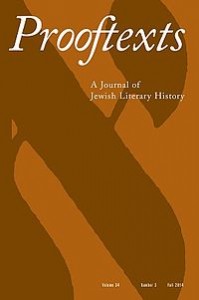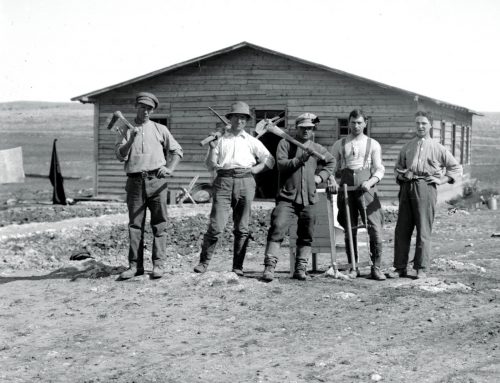
David Grossman‘s novel See Under: Love met with huge success when it was first published in 1986. Israeli readers greeted it instantly as a masterpiece.
Among other things, they welcomed the new and affecting treatment of Holocaust themes that See Under: Love had to offer. Grossman was a path-breaker in bringing attention to the second generation, the children of Holocaust survivors. In addition, he experimented with post-modern narrative techniques. His writing featured exuberant imagination while dealing with such difficult matters as trauma, catastrophe, and memory.
How has this novel fared over time? Is it as good today as people thought it was thirty years ago? Has it fulfilled its promise and proved to hold enduring appeal?
These are questions Naomi Sokoloff addresses in a recently published essay, “Rereading See Under: Love,” in Prooftexts 35, 1 (2015). That issue of the journal also includes a collection of essays she edited, all focusing on reassessments of Grossman’s novel. Or Rogovin looks at the representation of perpetrators and ways in which Grossman anticipated emerging trends in Holocaust literature. Mia Spiro considers monsters, monstrosities, and ghosts as a growing area of attention in fiction about the Holocaust. Iris Milner compares See Under: Love to an earlier Hebrew novel, Yoram Kaniuk’s Adam Resurrected (1969), to examine changing nationalist and universalist attitudes in Israel. Sheila Jelen focuses on Yiddish elements of Grossman’s novel to reflect on recent, increasing Israeli interest in Yiddish culture. Together, these essays suggest ways in which See Under: Love continues to fascinate, ways in which it was ahead of its time, ways in which it was a product of a particular historical moment, and ways in which it has proved to be a bellwether for developing ideas and subsequent literary efforts.
Editor’s Note: Next quarter, Prof. Sokoloff will be co-teaching “Prayer and Poetry in Jewish and Islamic Traditions” with Prof. Samad Alavi. Find out more about the class and register here.







Leave A Comment